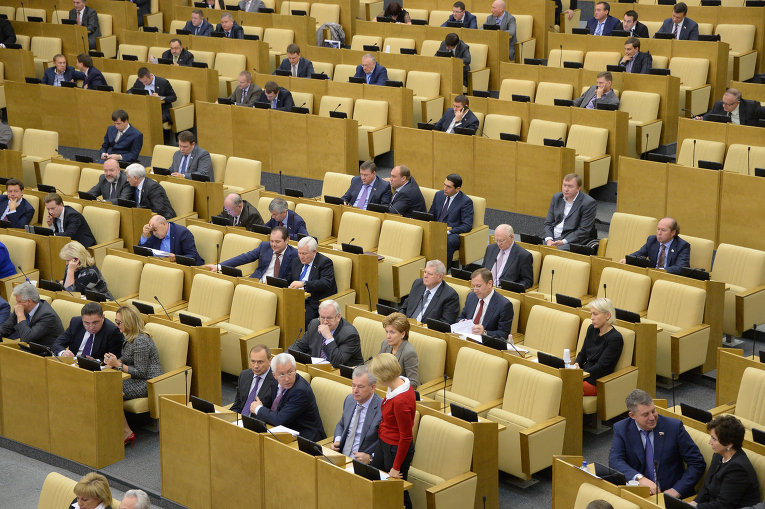MOSCOW, April 12 (RAPSI) – The State Duma adopted a bill that aims to curb abusive debt collection practices in the first reading on Tuesday, RIA Novosti reported.
The bill submitted by Sergei Naryshkin, the speaker of State Duma, and Valentina Matvienko, the speaker of the Federation Council, expressly prohibits debt collectors from using physical force against debtors, being abusive, unfair or deceptive in trying to collect a debt.
The bill also prohibits debt collectors from informing third parties about debt including relatives and colleagues, publishing the information about debtors online and posting it elsewhere.
Moreover, the bill limits communication between collectors and debtors. Personal meetings are allowed no more than once a week, while collectors can call debtors no more than twice a week.
Under the bill, debtors are allowed to reject any offers for cooperation with collectors.
The legislation also stipulates fines of up to 2 million rubles (about $30,000) for breach of liaison protocol between debtors and execution creditors.
People convicted of economic offenses or crimes against public security would be prohibited from performing collection activity.
The bill was introduced amid shocking incidents involving debt collectors which occurred lately throughout Russia.
In January, a Molotov cocktail was thrown into the window of a wooden house in the Russian city of Ulyanovsk. A 2-year-old child was badly burned and sent to a hospital. The boy was saved by his grandfather, who also received injuries in the fire. The bomb was allegedly thrown by a collector seeking repayment of a debt. Shortly after the incident, a man was arrested and later charged with an attempted murder.
In late March, another incident took place in the Novosibirsk Region. Unknown persons, allegedly the collectors, broke into the debtor’s apartment. The woman became a victim of sexual violence; her minor child and husband were beaten.
Prosecutor General Yuri Chaika has got the situation related to activity of debt collectors under his own control. According to prosecutors, collectors often harass and abuse people who owe money.
From January to June 2015, about 22,000 complaints were filed by Russian citizens against unlawful acts committed by would-be collectors, former Human Rights Commissioner Ella Panfilova said earlier citing by the Interior Ministry’s information.



